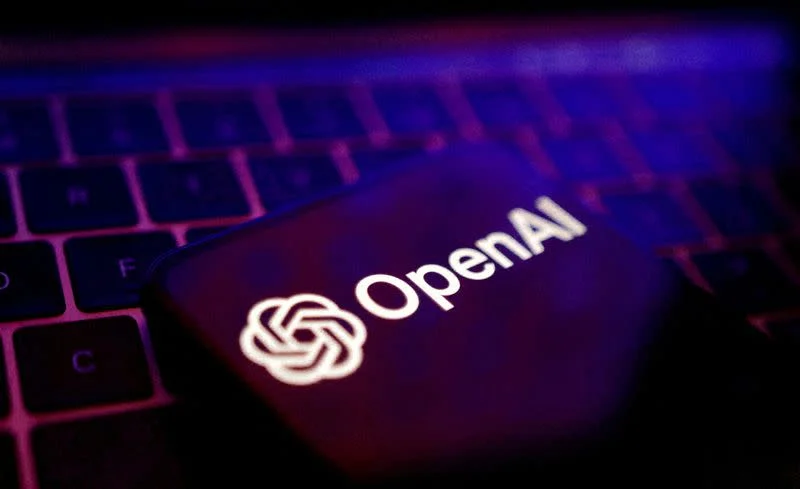Key Takeaways from OpenAI’s Shift:
- OpenAI plans to reduce ChatGPT’s censorship, allowing answers on more controversial topics.
- Critics say this move aligns with political shifts and aims to impress the Trump administration.
- ChatGPT will now provide multiple perspectives, even on divisive issues.
- OpenAI’s new policy may redefine AI safety, favoring free expression over strict moderation.
OpenAI’s New Policy: Less Censorship, More Perspectives
OpenAI has announced a major change in how it trains ChatGPT. The company says the chatbot will now aim for more intellectual freedom, answering more questions, even on sensitive or controversial topics. This shift is part of OpenAI’s updated Model Spec, a document outlining how its AI models should behave. The goal is to prevent ChatGPT from taking a strong stance on divisive issues while ensuring responses remain factual and well-rounded.
Check Out Latest Article Of Elon Musk Makes Bold $97.4 Billion Bid for OpenAI, Faces Sharp Rejection Published on February 12, 2025 SquaredTech
ChatGPT’s New Approach to Controversial Topics
In its updated policy, OpenAI introduces a principle called “Seek the truth together.” This means ChatGPT will not avoid difficult conversations, even if some users find certain responses offensive. Instead of taking a firm stance, it will provide multiple perspectives.
For example, the company states that ChatGPT should acknowledge both “Black lives matter” and “All lives matter.” This approach aims to keep the AI neutral, rather than shaping public opinion. OpenAI believes that AI should assist humanity by presenting information, not influencing beliefs.
However, this change does not mean that ChatGPT will answer every question. The chatbot will still refuse to spread false information or answer certain harmful prompts.
Political Motivations? OpenAI Denies It
Some analysts believe OpenAI’s policy shift is an attempt to align with the new Trump administration. Over the past few years, conservatives have accused AI companies of bias, claiming that chatbots like ChatGPT censor right-leaning views. Trump’s allies, including Elon Musk and venture capitalist David Sacks, have publicly criticized AI companies for what they call “AI censorship.”
However, OpenAI denies any political motivation behind its policy changes. A company spokesperson says the new approach is based on a long-standing belief in user control and free expression. OpenAI CEO Sam Altman has previously admitted that ChatGPT’s bias was a problem but claimed the company was already working on fixing it.
Still, some see the timing of this announcement as strategic. Former OpenAI policy leader Miles Brundage noted that the company’s shift might help it avoid scrutiny from the Trump administration, which has historically been critical of Silicon Valley’s content moderation policies.
Free Speech vs. AI Safety: A New Era?
Tech companies have always struggled with balancing free speech and content moderation. Social media platforms, news outlets, and search engines face constant pressure to remain neutral while keeping harmful content in check. Now, AI chatbots face an even tougher challenge—generating instant responses to any question.
By allowing ChatGPT to provide multiple perspectives, OpenAI is taking a bold stance on AI safety. Rather than preventing discussions on controversial topics, the company believes AI should present various viewpoints and let users decide for themselves.
This shift has sparked debate. Some believe it’s a step toward more transparent AI. Others worry that it could allow misinformation or harmful narratives to spread more easily. Regardless, OpenAI appears committed to making ChatGPT feel less restricted.
Silicon Valley’s Changing Values
OpenAI’s new policy is part of a broader transformation in the tech industry. Over the last year, several major companies, including Google, Amazon, and Intel, have moved away from left-leaning diversity initiatives. Even Meta has pivoted toward a stronger free speech stance, following Elon Musk’s approach on X (formerly Twitter).
Zuckerberg recently praised Musk’s Community Notes system, which relies on user-generated fact-checking instead of traditional content moderation. Both X and Meta have reduced their trust and safety teams, allowing more controversial content to remain online. These changes suggest a larger trend in Silicon Valley, where free speech is gaining priority over content restrictions.
The Future of AI and Information Control
OpenAI’s shift could have major implications for how AI-generated information is handled in the future. The company is not just competing in AI development—it’s also challenging Google Search as a primary source of online information. By promoting a less restricted chatbot, OpenAI may be positioning itself as a leader in AI-driven search results.
At the same time, OpenAI is working on massive AI infrastructure projects, including Stargate, a $500 billion initiative aimed at building advanced AI datacenters. Maintaining a strong relationship with the U.S. government will be crucial for these efforts. Some speculate that OpenAI’s policy changes could help secure government contracts or avoid regulatory scrutiny.
Conclusion: A Risky but Strategic Move
By reducing ChatGPT’s censorship, OpenAI is making a controversial yet strategic decision. The company claims its goal is to support intellectual freedom, but the political implications are hard to ignore. Whether this move will benefit OpenAI in the long run remains to be seen. One thing is clear—AI is no longer just a technology issue. It’s now deeply tied to politics, free speech, and the future of information control.
Stay Updated: Artificial Intelligence


